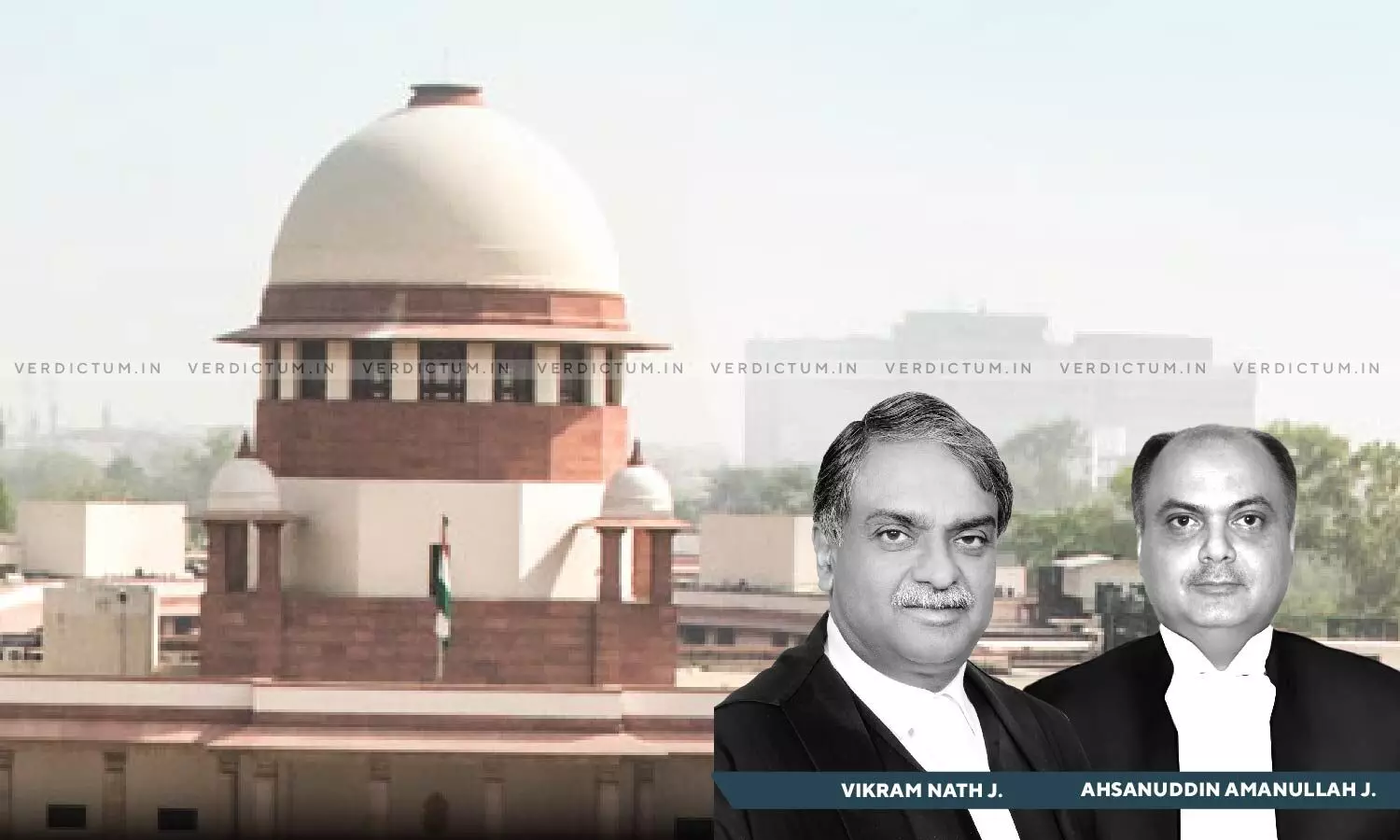
For A Person In Uniformed Service Like Police, Adverse Entry Relating To Integrity & Conduct Must Be Adjudged By Superior Authority: SC
 |
|The Supreme Court has held that for a person in a uniformed service, like the police, an adverse entry relating to his/her integrity and conduct is to be adjudged by the superior authority who records and approves such an entry.
The two-Judge Bench of Justice Vikram Nath and Justice Ahsanuddin Amanullah observed, “For a person in uniformed service, like the police, adverse entry relating to his/her integrity and conduct is to be adjudged by the superior authority(ies) who record and approve such entry. Personnel having such remarks being compulsorily retired as per the statutory provisions under the Punjab Civil Services Rules, 1934, in the instant facts, is not an action this Court would like to interdict.”
The Bench was deciding an appeal wherein the appellant was aggrieved by the judgment passed by the Punjab and Haryana High Court.
Advocate Vinod Kumar Tewari appeared on behalf of the appellant while AAG Nikhil Goel, Advocate Samar Vijay Singh, and Advocate Amrita Verma appeared on behalf of the respondents.
Brief Facts -
The appellant had joined as a Constable in Haryana Police in the year 1973 and was thereafter promoted as Head Constable. However, one Assistant Sub-Inspector made a complaint against him which led to a departmental enquiry where the appellant was held guilty and was ordered to be reverted from the Head Constable to Constable.
The appellant received a show-cause notice from the Director General of Police (DGP) stating that undue benefit had been given to him by expunction of remarks and why the same should not be restored and an order of compulsory retirement be passed against him. The DGP directed the reconstruction of the Annual Confidential Report (ACR) aggrieved by which the appellant approached the Single Judge who allowed his plea but on appeal by the State, the Division Bench set aside the previous judgment.
The Supreme Court in view of the above facts noted, “… the observation by the learned Civil Court that the appellant could approach the authority, cannot be taken to mean that the appellant was granted carte blanche liberty in law to approach the same authority. What the learned Civil Court lost sight of was that no provision permitted the course of action suggested by it. Examined from another lens, even if we were to read the learned Civil Court’s view in the appellant’s favour, at best, he may have had some justification in approaching the Director General of Police, Haryana, being a superior authority, but the same authority could not have been approached again.”
The Court also noted that even though the appellant had a window to move before the authorities again and dehors the Civil Court not interfering, the same should have been to the superior authority and not the same authority, which had earlier refused expunction.
“In any event, we need not dilate on this further. … As such, the Director General of Police had rightly show-caused the appellant and taken subsequent action thereupon. Considering the chain of events, the consequential action, in our considered view, cannot be said to be arbitrary or shocking the conscience of the Court, so as to warrant interference”, said the Court.
Accordingly, the Apex Court dismissed the appeal and refused to interfere with the judgment of the Division Bench.
Cause Title- Aish Mohammad v. State of Haryana & Ors.